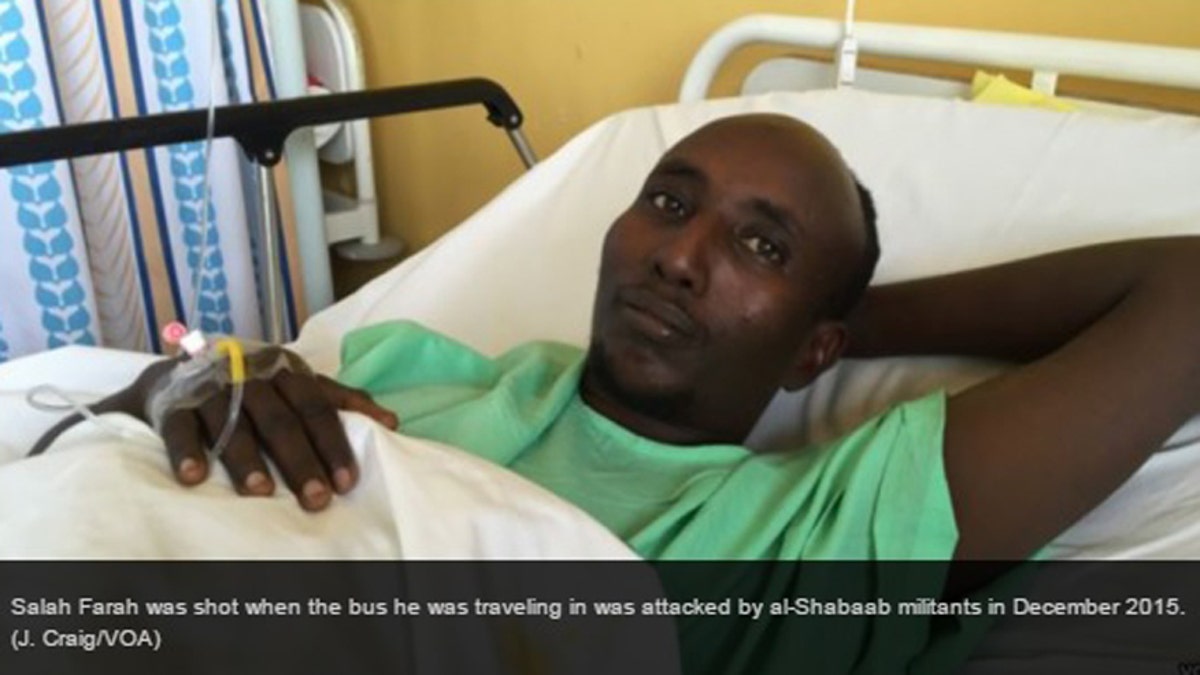
Muslim teacher Salah Farah stood in the way as Islamist militants stormed his bus in Kenya in December -- refusing their demands to split from Christian passengers and instead taking a bullet that would later kill him.
Now, three months after the attack, the father of five will be honored posthumously by Kenya for his act of courage, the country's president announced this week.
President Uhuru Kenyatta told parliament during his state of the union address Thursday that he is awarding the Order Of The Grand Warrior -- one of the country's highest honors -- to Farah, according to multiple media reports.
Farah and about 60 other passengers were traveling from the capital, Nairobi, to the town of Mandera, on Dec. 21 when Somalia-based al-Shabab militants began firing shots at the bus.
The gunmen forced the bus to stop and told the Muslims and Christian passengers to separate. Farah, who was the deputy head of the Mandera township primary school, and other Muslim passengers refused to cooperate -- instead telling the insurgents to kill all the passengers or leave them alone. Al-Shabab militants have been known to execute Christians and spare Muslims in previous attacks in the region.
Farah, who was shot in the hip and suffered shrapnel wounds to his arm, died during surgery one month later. Prior to his death, Farah told Kenya's The Daily Nation that, "We asked them to kill all of us or leave us alone."
"People should live peacefully together,” Farrah told Voice of America from his hospital bed in January.
“We are brothers. It's only the religion that is the difference, so I ask my brother Muslims to take care of the Christians so that the Christians also take care of us. … and let us help one another and let us live together peacefully," Farah said.
On Thursday, Kenyatta lauded Farah, telling parliament that the Muslim man "refused to be divided by terrorism," BBC News reported.
"We are our brother's keeper. I salute Salah Farah, (the) Muslim teacher who died protecting Christians in Al-Shabaab attack," Kenyatta said, according to The Daily Nation.
Farah's brother, Rasheed, told the news outlet that the Kenyan president called the family on Thursday and asked about Farah's five children.
"The President himself called us Thursday at noon. He asked about Salah's five children and told me 'usijali (don't worry) we shall take care of them.' He also spoke to his wife and other family members," he told the Daily Nation.
"He (the President) vowed to visit Mandera to visit the children, saying they won't be forgotten. We are very happy we have not been forgotten. We are one people," he said.
Immediately following Farah's death, Kenyans took to social media to praise him, saying his example should be emulated in a country facing a growing threat of Islamic extremism as Kenyans with ties to al-Shabab launch attacks in this country.
In 2011, Kenya's government deployed peacekeepers to Somalia in part to stop al-Shabab members from crossing the border and launching attacks on Kenyan territory. Al-Shabab opposed the deployment and vowed to wage more attacks.
The Associated Press contributed to this report.
